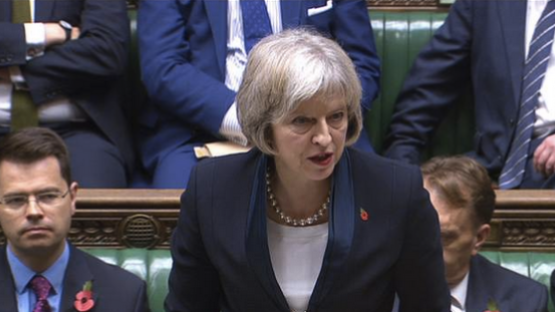Make no mistake, this is a new Snooper's Charter, and it's worse than ever

Despite Wednesday's publication of the Investigatory Powers Bill being trailed as world leading legislation that would balance security and privacy, what the Government is actually seeking is a mandate for mass surveillance. This is a new Snoopers' Charter and we must oppose many of its most virulent elements.
The true debate on surveillance can now begin. After years of downplaying, obscuring, and denying the Snowden revelations, the Government has finally joined the conversation about the powers it should have to watch us. For the first time Parliament and the British public will be able to question the Government's proposed mass surveillance powers, like bulk interception, bulk hacking, and analysing all our 'communications data' – the who, what, when and where of our communications.
The Draft Investigatory Powers Bill, published on Wednesday, proposes the legitimisation of powers that no other democratic nation has had the audacity to attempt. They are asking Parliament to give them new powers to hack into our computers and look at our internet browsing histories. The Government also wants to require Internet Service Providers and technology companies to work hand-in-hand with them to facilitate this mass surveillance.
The draft Bill also aims to legitimise so-called “Equipment Interference”, giving intelligence agencies and police the power to hack into your phone, computer or other device, when information “may not longer be obtained through other techniques, such as interception, as a result of sophisticated encryption”[PDF]. It would be lawful for them to switch on your webcam and watch you, and switch on your microphone and record your phone conversations.
While the U.S. is currently reining in bulk collection of our information, the U.K. is going in the opposite direction, enshrining in law the right for the Government to put us all under permanent mass surveillance.
The draft Bill also aims to legitimise data-mining of our personal data, saying it is essential in helping the intelligence agencies “to establish links between individuals and groups, to understand better a subject of interest’s behaviour and connections”. In June 2015, Privacy International filed a legal complaint against the UK Government after suspecting that intelligence agencies were data-mining our data on a massive scale. PI demanded an end to the bulk collection of phone records and harvesting of other databases from millions of people who had no ties to terrorism, nor were suspected of any crime. The Government has admitted most of those in the databases are “unlikely to be of intelligence value”. Despite this, in the proposed Bill it is now being proposed as an effective way to monitor crime. In June 2015, the United States congress passed the USA Freedom Act curtailing the equivalent NSA power.
It is disingenuous for the Government to say that the Bill does not contain new powers. Existing law does not permit the Government to hack into our computers and retain records of all our internet communications. No other Government in the world has legislated for bulk hacking. No other Government has legislated to retain our internet records.Home Secretary Theresa May proposed that the bill will establish "world-leading oversight to govern an investigatory powers regime which is more open and transparent than anywhere else in the world". The Bill will be world leading only in the sense that other Governments will imitate these seem draconian powers.
This is without doubt a new Snooper's Charter, and it's more insidious than ever. We are calling for significant revisions.
Gus Hosein, Executive Director of Privacy International, said:
“The Government had the opportunity to write the world-leading new legal framework to govern the incredible powers they now possess. Instead the Home Office has drafted a wish list that we have only seen in the ambitions of the delirious despot. In addition, they dropped multiple bombshells: did anyone know that the police were hacking? No. They also confirmed the suspicions of Privacy International, revealing that MI5 collects, retains, and mines a database of phone records of everyone in the country, and has done so for the past decade. This exact form of surveillance led to outrage in the U.S., extensive scrutiny by the public, the courts, and Congress shut it down.
These intrusive powers were long shrouded behind the opaque “we can neither confirm nor deny”. Government programs such as KARMA POLICE and OPTIC NERVE will remain legal under the Home Office's wish list draft bill. We need a debate that not only establishes strong and effective safeguards on the powers that intelligence service and police already using. We need to scrutinise this bill to imagine what kind of surveillance the Home Office will be secretly deploying under this law in five years time. Remember the words of the Independent Reviewer on Terrorism Legislation, David Anderson QC: the current legal regime is undemocratic. Yet we had all the promises before that it was a world-leading regime with all the necessary safeguards. We cannot blindly buy the Home Office’s promises again.
This Bill gives us the opportunity to demand that powers are granted by democratic consent, and not taken in secret, only when necessary in a modern democratic society under the rule of law. We can now have a national conversation about what kind of world we want to live in, which surely is one governed by fair laws and democratic deliberation, and not on of secret powers that is the reserve of despots.”



